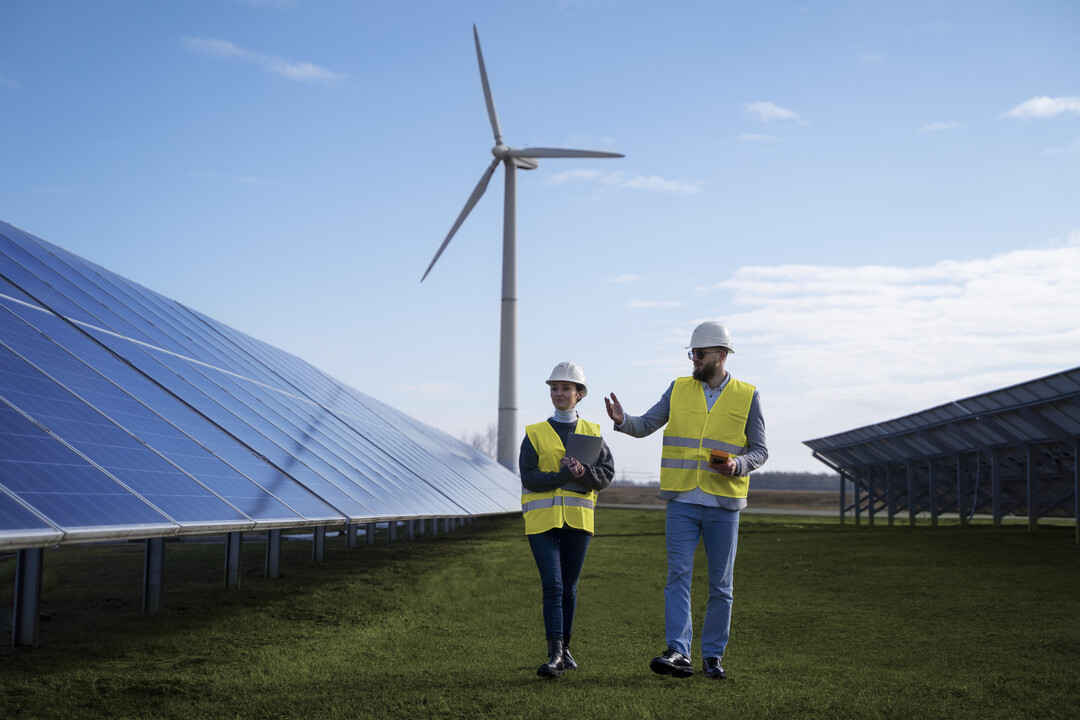In the quest for a more sustainable future, Renewable Energy and Sustainable Development (RESD) has emerged as a critical focus area for governments, businesses, and communities worldwide. As the world grapples with the challenges of climate change, resource depletion, and environmental degradation, RESD offers a pathway to a greener and more equitable future. This article delves into the core principles of RESD, its significance, and the transformative impact it holds for our planet.
Understanding RESD
Renewable Energy and Sustainable Development encompass a holistic approach to energy production and consumption that prioritizes environmental stewardship, economic viability, and social equity. It involves the integration of renewable energy sources, such as solar, wind, hydro, and biomass, into the broader framework of sustainable development goals. The ultimate aim is to reduce reliance on fossil fuels, mitigate greenhouse gas emissions, and promote sustainable growth that benefits current and future generations.
Key Components of RESD
Renewable Energy Sources: At the heart of RESD is the shift from fossil fuels to renewable energy sources. Solar, wind, hydro, and biomass are among the primary renewable energy technologies that offer cleaner alternatives to coal, oil, and natural gas. These sources are abundant, naturally replenishing, and have minimal environmental impact compared to traditional energy sources.
Energy Efficiency: Improving energy efficiency is a crucial aspect of RESD. It involves optimizing energy use across various sectors, including transportation, industry, and residential areas, to reduce waste and enhance overall energy productivity. Energy-efficient technologies and practices help lower energy consumption, decrease emissions, and save costs.
Sustainable Development Goals (SDGs): RESD aligns with the United Nations’ Sustainable Development Goals, particularly Goal 7 (Affordable and Clean Energy) and Goal 13 (Climate Action). By promoting renewable energy and sustainable practices, RESD contributes to a broader agenda of ending poverty, improving health and education, and fostering economic growth
Policy and Regulation: Effective policies and regulatory frameworks are essential for advancing RESD. Governments play a pivotal role in setting targets, providing incentives, and creating an enabling environment for renewable energy investments. Policies that support research and development, tax incentives, and subsidies for renewable energy projects can accelerate the transition to sustainable energy systems.
Community Engagement: Engaging communities in RESD initiatives is vital for their success. Local involvement ensures that renewable energy projects are tailored to the specific needs and preferences of the communities they serve. Community-driven renewable energy projects can enhance energy access, create jobs, and foster a sense of ownership and empowerment.
The Significance of RESD
Environmental Benefits: The transition to renewable energy sources significantly reduces greenhouse gas emissions, air pollution, and environmental degradation. By minimizing the carbon footprint, RESD helps combat climate change and preserve natural ecosystems.
Economic Opportunities: RESD fosters economic growth by creating new industries and job opportunities. The renewable energy sector is labor-intensive, offering employment in manufacturing, installation, maintenance, and research and development. Additionally, investing in energy efficiency can lead to substantial cost savings for businesses and households.
Energy Security: Diversifying energy sources through RESD enhances energy security by reducing dependence on imported fossil fuels. Renewable energy resources are often locally available, providing a stable and reliable energy supply.
Social Equity: RESD promotes social equity by ensuring access to clean and affordable energy for all. Renewable energy projects can bring electricity to remote and underserved areas, improving living standards and fostering inclusive development.
Challenges and the Way Forward
While RESD holds immense potential, it also faces challenges such as high initial costs, technological barriers, and regulatory hurdles. Overcoming these challenges requires collaborative efforts from governments, the private sector, and civil society. Investing in research and development, fostering public-private partnerships, and implementing supportive policies are key steps toward advancing RESD.
Conclusion
Renewable Energy and Sustainable Development represent a transformative vision for a sustainable and equitable future. By harnessing the power of renewable energy sources, improving energy efficiency, and aligning with global sustainable development goals, RESD offers a pathway to addressing the pressing environmental and socio-economic challenges of our time. Embracing RESD is not only an environmental imperative but also an opportunity to build a resilient and prosperous world for generations to come.
